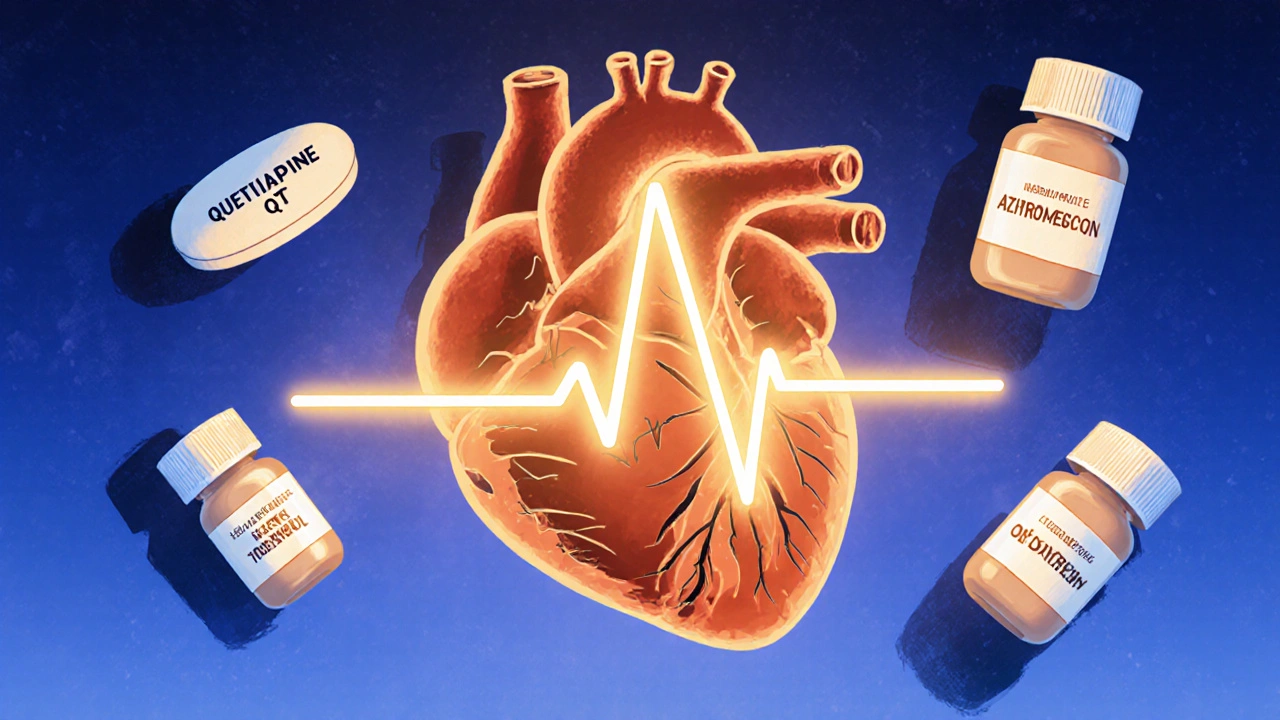Torsades de Pointes: Causes, Risks, and Medications That Can Trigger It
When your heart’s electrical system goes off rhythm, it can lead to something called torsades de pointes, a life-threatening type of irregular heartbeat that often shows up as a twisting pattern on an ECG. Also known as polymorphic ventricular tachycardia, it doesn’t just happen out of nowhere—it’s usually tied to something else, like a prolonged QT interval or a drug you’re taking. This isn’t just a technical term you hear in hospitals. It’s a real risk for people on certain heart meds, antibiotics, antipsychotics, or even some anti-nausea pills.
Torsades de pointes is closely linked to long QT syndrome, a condition where the heart takes longer than normal to recharge between beats. This delay can be inherited, but more often, it’s caused by medications. Drugs like quinidine, sotalol, or even cisapride (now pulled from many markets) have been known to push the QT interval too far. Even common drugs like certain antidepressants or antifungals can do it, especially if you’re taking more than one or have kidney or liver issues. Your genes also play a part—some people have variations in genes like CYP2D6, which affects how fast your body breaks down drugs, making them more vulnerable to side effects that others don’t feel.
It’s not just about the drug itself—it’s about the combo. Take a drug that prolongs QT, add another that does the same, throw in low potassium or low magnesium, and you’ve got a recipe for trouble. That’s why doctors check electrolytes and ECGs before starting certain treatments. People with existing heart conditions, older adults, or women are at higher risk too. You might not feel anything until it’s too late—dizziness, fainting, or sudden collapse can be the first signs.
What you’ll find in these articles isn’t just theory. It’s real-world info on how drugs like domperidone, cabergoline, or even some antibiotics can quietly increase your risk. You’ll see how genetic testing can help predict who’s more likely to react badly. And you’ll learn which medications are safest if you’re already on something that affects your heart rhythm. This isn’t about scaring you—it’s about giving you the facts so you can ask the right questions and stay safe.

Antipsychotics and QT-Prolonging Drugs: What You Need to Know About Heart Risks
- by Colin Edward Egan
- on 7 Nov 2025
Combining antipsychotics with other QT-prolonging drugs can dangerously stretch the heart's electrical cycle, raising the risk of sudden cardiac events. Learn which medications are safest, who's most at risk, and how to prevent life-threatening arrhythmias.
